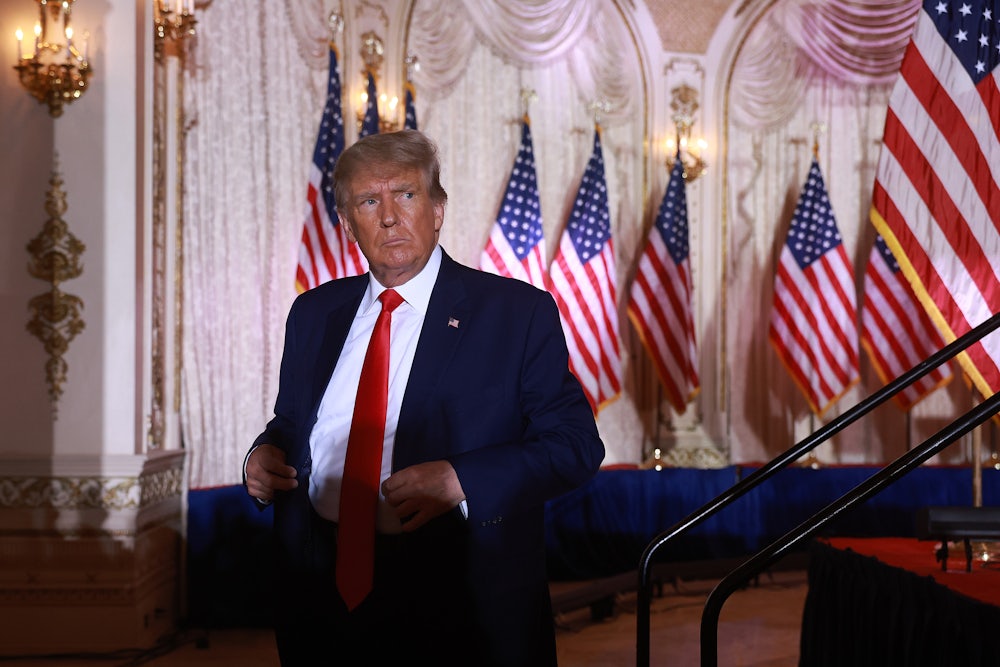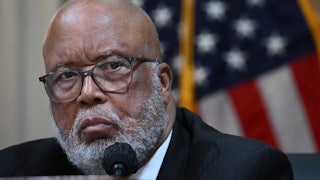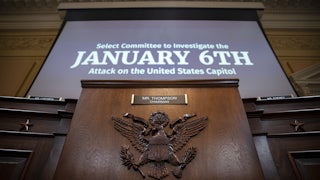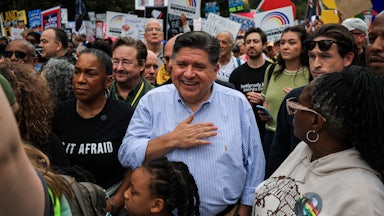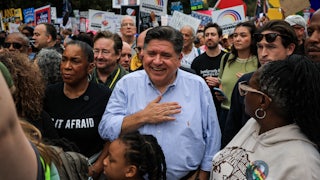Donald Trump is responsible for the attack on the U.S. Capitol on January 6, 2021. That is irrefutable, thanks to the bipartisan January 6 committee’s powerful and penetrating report released on Thursday. The question now is whether Trump will be prosecuted for his role in what has already produced guilty verdicts for the foot soldiers in the insurrection. Many analysts have already picked over the bones of the four criminal referrals the committee made to the Department of Justice earlier this week, some also pointing out that “seditious conspiracy,” the most dramatic potential criminal charge, is not part of the committee’s criminal referral. As Representative Jamie Raskin made clear on The ReidOut on MSNBC, there just wasn’t have enough evidence. Too many members of Congress refused to cooperate, and many witnesses asserted the right to stay silent because answering questions would make them look guilty. Evidence of seditious conspiracy may exist, but it will be up to the DOJ to find it.
The January 6 report still shares copious evidence of serious crimes, including Trump assisting sedition. The committee found he “provoked” the violence of that day, “purposely” lied about a rigged election that fed it, “knowingly” and “corruptly” pressured Vice President Mike Pence to refuse to count lawful electoral votes, “unlawfully” pressured state officials to change election results, and refused for hours to ask the violent insurrectionists to stop and go home. The report’s words are legal and designed to build the case for criminal referral, and they put Trump in the middle of the action, not just the sidelines. Now, Trump must be called to account, along with his henchmen. But the reasons for doing so go beyond personal accountability, even if he isn’t charged with seditious conspiracy. As Raskin said at the final hearing, “Authoritarian parties … do not accept the results of democratic elections when they lose; and they embrace political violence as legitimate. And the problem of incitement to political violence has only grown more serious in the Internet Age.” This is why prosecution matters.
Trump’s corrupt effort to stop the certification of the election and defraud the country—which is to say, steal the election—is serious enough. These charges connect Trump and others to what is undeniably sedition, and that matters to hold Trump accountable and to chill powerful public leaders’ denial of the dangerous hate that Trumpism has fomented. He knew he lost the election, directly participated in recruiting lawmakers to a fake elector scheme and to recruit Pence to his and his co-conspirators’ plan. During the first presidential debate of the 2020 campaign, Trump called on the Proud Boys to “stand back and stand by” despite his apparent knowledge that they were white supremacists, and he demanded armed people be allowed to his rally, encouraged them to go to the Capitol, and refused to denounce the violence and ask seditionists to go home. He even tweeted an incitement against Pence for refusing to do his bidding.
Two foot soldiers have already been tried and convicted of seditious conspiracy: Stewart Rhodes and Kelly Meggs, both of the Oath Keepers. Members of the Proud Boys—which formed in 2016, inspired by Trump’s racism and misogyny—are on trial now for seditious conspiracy. Their conviction is likely, given the documentary evidence of their highly designed plan for January 6 and the fact that one of their members has already become a witness for the prosecution. But the Proud Boys will continue to be a violent, intimidating, racist, sexist, homophobic local presence around the country, and it will be so much harder for politicians and pundits to embrace them or deny their violent behavior and hate-filled views.
Trump henchman Roger Stone has a history of relationships with both the Proud Boys and Oath Keepers. He sought a relationship with them as early as 2018, calling himself a member. He was caught on video with two defendants on trial for seditious conspiracy in December 2020. He was also with Oath Keepers on the morning of January 6. Stone was one of the subpoenaed witnesses who asserted his Fifth Amendment right not to incriminate himself in the face of questions about his communications with Trump, Oath Keepers, and the Proud Boys, related to the events of January 6. The committee has evidence Stone was in direct communication with the White House during the lead up to the insurrection. On December 27, 2020, a message from Representative Scott Perry, whom the committee referred for ethics investigation, alerted Trump Chief of Staff Mark Meadows that Stone had messaged Meadows on Signal, the encrypted chat app.
The more aggressive the investigation, the more likely that, just like the indictments against the Oath Keepers and Proud Boys, more people with knowledge of the planning of the Capitol attack, or who need to make a deal to save themselves, will cooperate. That is a power the January 6 committee did not have.
Again, this isn’t only about personal accountability. It is also about the public square. Too many leaders, political, pundits, and CEOs of social media platforms have outright supported, protected, or platformed violent, criminal people and their organizations. Republican National Committee Chair Rona McDaniel, in censuring the two Republicans who participated in the January 6 committee (Representatives Liz Cheney and Adam Kinzinger), dismissed the violence on January 6 as “free speech.” Representative Matt Gaetz and conservative pundit Ann Coulter have hired the Proud Boys as personal “security,” further normalizing their vigilantism. Representative Marjorie Taylor Greene headlined an event hosted by Nick Fuentes, the notorious white supremacist and Holocaust denier whom Trump dined with in November. She also participated in the New York Young Republicans gala after its leader called for “total war” on Republican enemies, and pronounced that if she and Trump ally Steve Bannon had brought weapons on January 6, they would have “won.”
To be clear, none of the acts in the above paragraph are illegal and our Constitution allows people to nonviolently express their violent, hate-filled views, if they are not inciting violence or other crimes. The problem is that it has become cloaked in the lie that the RNC’s McDaniel propagated as well: that these racist, sexist, homophobic, and violence-prone groups are none of those things, and that Trump didn’t use them to incite violence on January 6 and beyond. It’s like being told the pigeon overhead isn’t a pigeon and it isn’t flying. Prosecutions, including of powerful people, have a way of laying bare the truth.
The most recent poll shows half of Americans—including over 80 percent of Democrats and 52 percent of independents—want Trump prosecuted thanks to the evidence presented at the committee’s hearings. Only 12 percent of Republicans agree. But that split may justify prosecution even more. If Trump and his co-conspirators are held accountable, other powerful people will think twice before aligning with them. It will also help many Americans, whether or not they agree with prosecuting a former president, to understand why such behavior shouldn’t be normalized even if our elected leaders couldn’t stop it.
